-

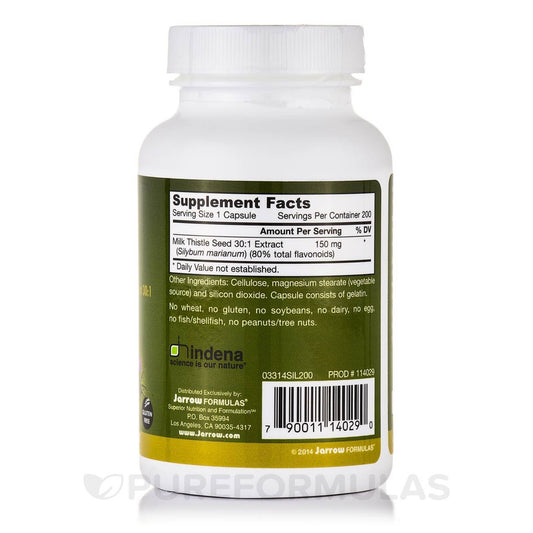
Milk Thistle 150 mg 200 caps | Dr. Ruth Roberts
Milk Thistle 150 mg 200 caps | Dr. Ruth Roberts
Vendor:Jarrow Formulas(42)Regular price $38.49 USDRegular priceUnit price perSupports Liver Function* Jarrow Formulas® Milk Thistle ( Silybum marianum) 30:1 concentrate is standardized to contain 80% total Milk Thistle seed flavonoids, including the important Silymarin fractions isosilybinins A and B, silybinins A and B, silychristinand silydianin. This particular group of flavonoids, collectively known as Silymarin, supports liver function by raising protective glutathione levels. No wheat, no gluten, no soybeans, no dairy, no egg, no fish/shellfish, no peanuts/tree...
-


Liposomal Glutathione 4 oz
Liposomal Glutathione 4 oz
Vendor:Empirical Labs(42)Regular price $62.99 USDRegular priceUnit price perLiposomal Glutathione is the biologically active form of Glutathione, the master antioxidant of the body. When the liver is not functioning properly, adding Glutathione helps the liver clear away the backlog of detoxification the liver has been struggling to keep up with. For best results, start with 1/4 dose and work up to the full dose over the course of 4 to 10 days. This product must remain refrigerated to maintain efficacy. It can be given directly in the mouth via a syringe or add...
-
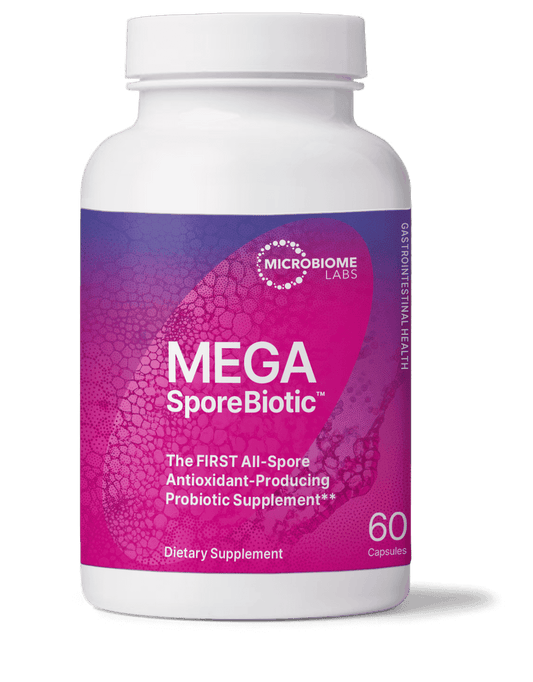
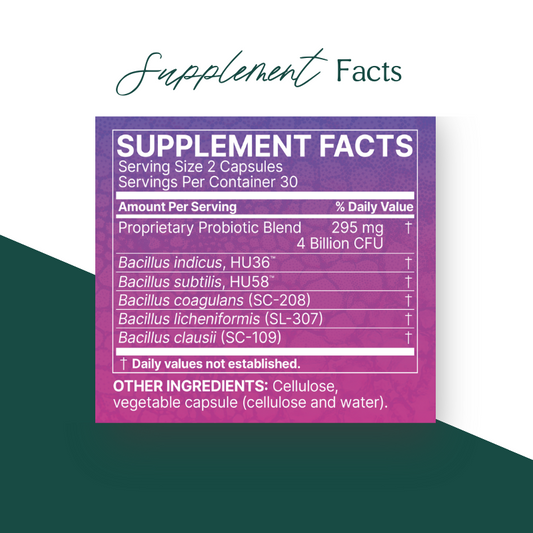
MegaSporeBiotic™ - Probiotic Supplement for Dogs and Cats
MegaSporeBiotic™ - Probiotic Supplement for Dogs and Cats
Vendor:Microbiome Labs(42)Regular price $64.95 USDRegular priceUnit price perMegaSporeBiotic contains a blend of five spore-forming Bacillus strains. These spore-based Probiotics are naturally resistant to stomach acid, which may help them reach the intestines, where they can support the balance of gut bacteria. The spore-based formula may help maintain microbial diversity in the gut, which plays an important role in overall health. This supplement does not require refrigeration, making it a convenient option for daily use. Usage Information: It is recommended to cons...
-
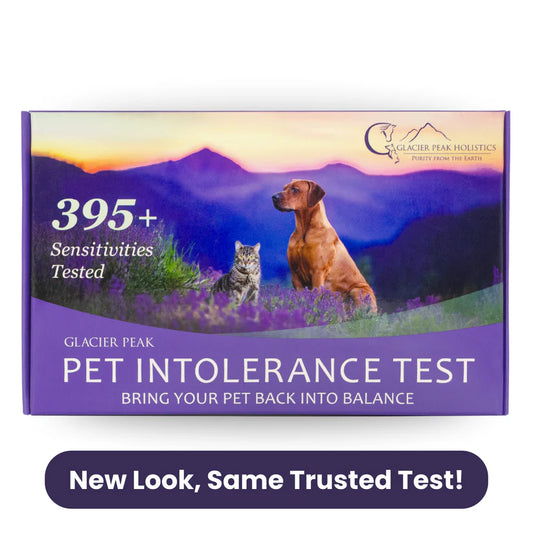
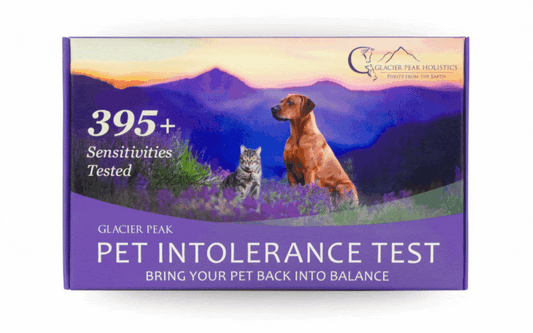
Glacier Peak Pet Intolerance Test (Pet Wellness Life Stress Scan Kit)
Glacier Peak Pet Intolerance Test (Pet Wellness Life Stress Scan Kit)
Vendor:Glacier Peak Holistics(42)Regular price $129.95 USDRegular priceUnit price per$129.95 USDSale price $129.95 USDThis test is not a traditional dog allergy test or DNA testing kit. Unlike traditional pet allergy testing, our test uses Biofeedback technology with hair and saliva samples to identify intolerances and sensitivities. The system is based on over 300 food and environmental factors. With diet change and sometimes a few added supplements, you can help your pets live their best lives. Many people ask us “what can I give my dog for allergies?” Then they invest in cat or dog allergy medicine or e...
-

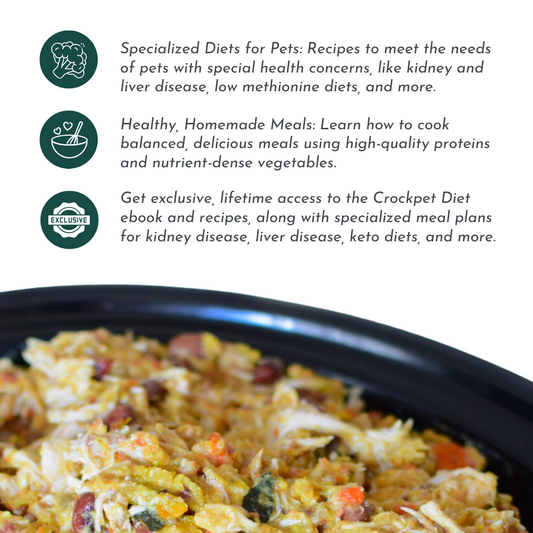
The Original Crockpet Diet™ Ebook and Recipes
The Original Crockpet Diet™ Ebook and Recipes
Vendor:Dr. Ruth's Courses(42)Regular price $49.00 USDRegular priceUnit price per$97.00 USDSale price $49.00 USDIgnite the Chef in You for a Healthier, Happier Pet Are you tired of commercial pet food options that leave you guessing about what's really in your fur baby's bowl? Take control of your pet's nutrition with our comprehensive self-paced course! What You'll Learn🌟 TOCPD Cooking Essentials: Master the art of crafting balanced, nutritious homemade meals for your pets. Discover rotation diet templates tailored for both cats and dogs, ensuring a well-rounded diet. 🐶 TOCPD For Dogs: From succulent...
Sale -
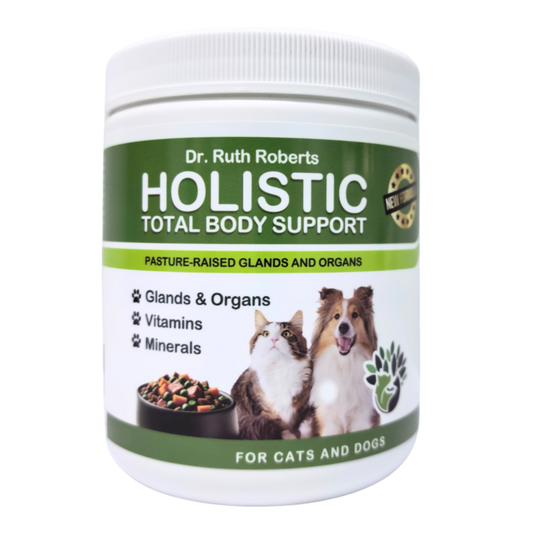
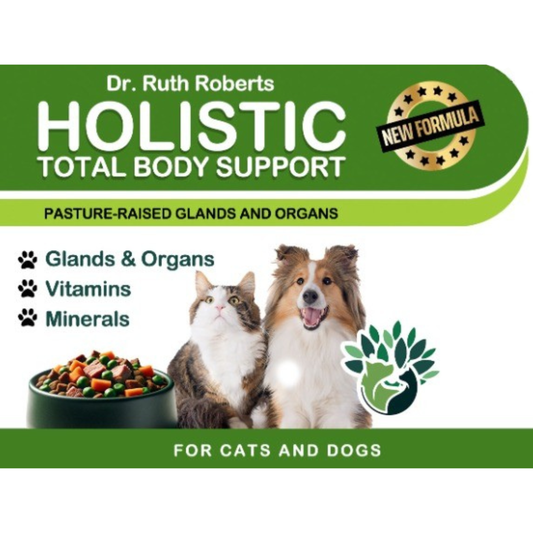
Holistic Total Body Support – Multivitamin & Glandular Support for Dogs and Cats
Holistic Total Body Support – Multivitamin & Glandular Support for Dogs and Cats
Vendor:Dr. Ruth Roberts(42)Regular price $64.00 USDRegular priceUnit price per$64.00 USDSale price $64.00 USD*NEW FORMULAHolistic Total Body Support formulated by Dr. Ruth Roberts is a daily multivitamin for dogs and cats, designed to complement a variety of feeding routines—including home-cooked diet. This powdered blend provides a wide range of essential vitamins, minerals, amino acids, and organ-based ingredients (known as glandular supplement), including calcium citrate for dogs and cats as part of its balanced formula. This versatile multivitamin is often selected by pet parents seeking a nutri...
-
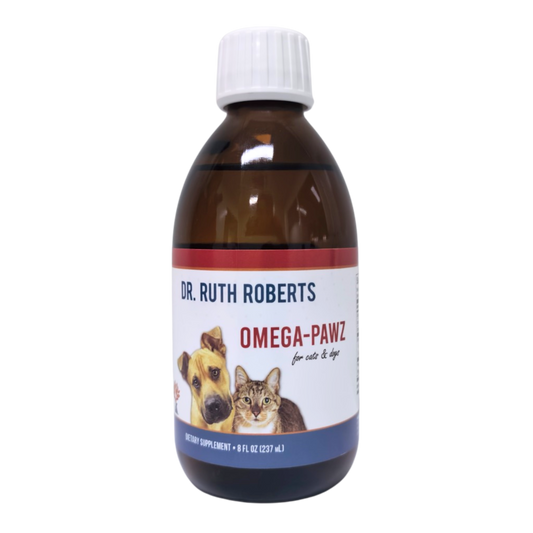
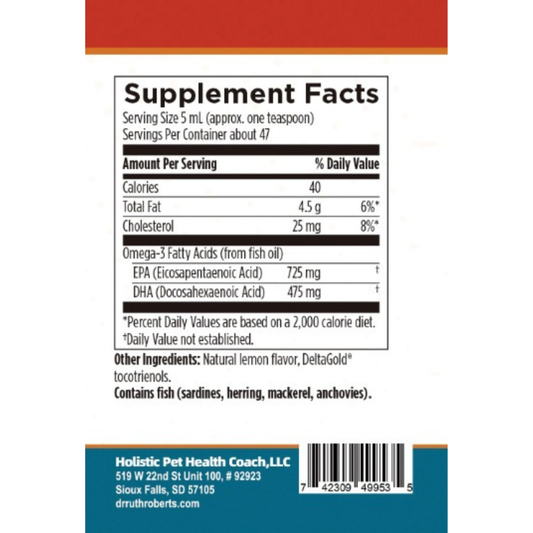
Omega Pawz - Liquid Omega 3 Oil for Dogs and Cats
Omega Pawz - Liquid Omega 3 Oil for Dogs and Cats
Vendor:Dr. Ruth Roberts(42)Regular price $39.00 USDRegular priceUnit price perOmega Pawz by Dr. Ruth Roberts is a liquid omega 3 oil for dogs and cats, thoughtfully made with quality fish oil to complement your pet’s daily feeding routine. This easy-to-use formula includes EPA and DHA, two well-known omega-3 fatty acids found in marine sources. Whether you're looking for omega 3 oil for dogs to include as part of a regular rotation or exploring omega 3 oil for cats for variety in their diet, Omega Pawz offers a simple, pet-friendly option. The light lemon flavor helps ...
-
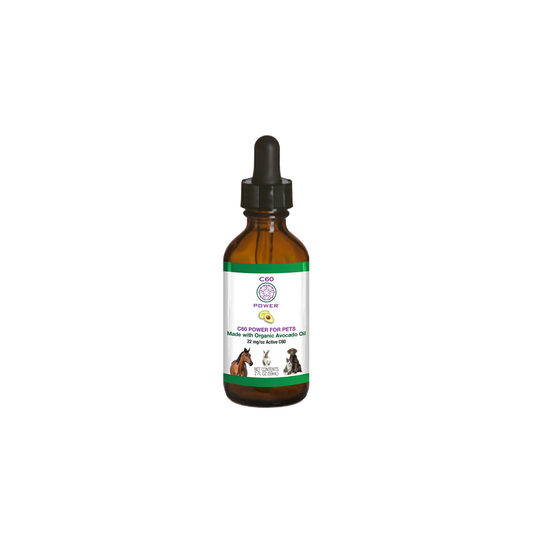

C60 Purple Power - Antioxidant with Organic Avocado Oil (59ml)
C60 Purple Power - Antioxidant with Organic Avocado Oil (59ml)
Vendor:C60 Purple Power(42)Regular price $60.00 USDRegular priceUnit price perGive your pet the gift of optimal health with C60 antioxidant oil!Made with 100% organic cold-pressed avocado oil, this supplement delivers top-tier quality and powerful support for your pet’s well-being. Rich in antioxidants, C60 helps protect your pet’s body from harmful free radicals—reducing the risk of age-related diseases and supporting a longer, healthier life. Perfect for pets of all ages and sizes, it’s especially helpful for those dealing with joint pain, allergies, or chronic healt...
LET'S LEARN MORE ABOUT
Liver Disease in Pet
Common Causes of Liver Disease In Pets
Common Symptoms Of Liver Disease In Pets
Relief and Support for Pets with Liver Disease
Talk to Us
If you need help with starting up the course or getting access to the recipes and videos, please don't hesitate to contact us via call/text at +213 394 2923 / email drruthroberts@drruthroberts.com.


















